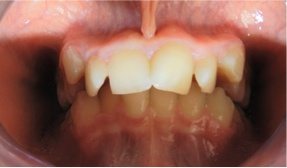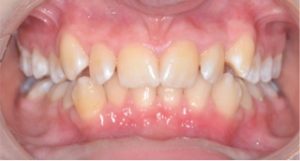The Problem with being a Mouthbreather
Have you been told that you are a “mouthbreather”? Do you really understand what this means, and the harm it could be doing to your health? There are many reasons for this including nasal obstructions, restricted rib movements or anxiety caused by social issues.
From birth we are born to breathe naturally through our nose. You only need to reflect on a time you had a stuffy or blocked nose to experience the difficulty in sleeping well or getting a refreshing sleep. Headaches, tiredness and general weakness are often some symptoms you would have felt in the past.
Just how common are breathing disorders amongst Australians? According to the 2012 Australian Health Survey, an estimated 6.3 million people suffered from a chronic respiratory condition. Worse still was that there were over 13,000 deaths that year due to an acute or chronic respiratory condition!
The dangers of mouthbreathing
Most chronic breathing conditions result in chronic mouth breathing over time. These conditions include asthma sufferers, hay fever, chronic sinusitis and sleep apnea.
Just how deleterious is it to be a mouth-breather? One of the most notable researchers, a Cambridge physician, explained the negative health effects of mouth-breathing this way:
“Cortical inhibition, emotional instability, generalised body tension and a chronic inability to relax … proneness to tetany (spasm) in muscles involved in [the] “attack posture” – they hunch their shoulders, thrust head and neck forward, scowl and clench their teeth” (Lum 1994)
How could all these symptoms link back to abnormal breathing patterns? In simple terms when you mouth-breathe you blow off more CO2 from your lungs than normal. CO2 is actually the body’s trigger to stimulate and regulate your breathing and NOT oxygen. This creates an abnormally high alkaline environment in our lungs.
In a vain attempt to restore normal CO2 levels to the body, our blood vessels constrict, decreasing blood flow. This further hinders our oxygen-carrying red blood cells from reaching our tissues. A reduction in blood flow to various parts of our body can induce the frightening array of symptoms mentioned above.
Causes of mouthbreathing
So how is it best to treat people suffering with chronic mouth-breathing? Whilst there are many causes, here are 3 main causes:
1) Physical obstructions – Identify anything that prevents nasal breathing such as enlarged tonsils, adenoids, deviated nasal septum’s and polyps.
2) Postural assessment – Do you suffer with a compromised posture or weak abdominal muscles that encourages mouth-breathing?
3) Anxiety assessment – You’ve heard the phrase, “Take a breathe in and sit down!”. Chronic anxiety, however, will alter your breathing permanently until it is managed and treated!
Treatment for mouthbreathers
Most chronic breathing conditions result in chronic mouth breathing over time. These conditions include asthma sufferers, hay fever, chronic sinusitis and sleep apnea.
Breathing issues need to be properly managed 24 hours a day for them to be truly effective. Buteyko, Pilates, and Qi gong can assist with breathing retraining whilst you are awake. Of higher importance is the breathing we do while asleep. You are asleep one-third of your life and if a proper airway is not maintained then no amount of “cognitive” retraining will help!
From a personal dental perspective, I can share with our readers the life changing impact that a widened upper jaw can make on health. Our patients are able to breathe significantly better through a dental service called dental orthopaedics.
Many patients have reported they breathe much better both at night and during the day, their headaches are relieved, concentration is improved and they are in a better mood in the mornings (i.e.. Less grumpy!). Below is a example of a young patient who had 12 months of dental orthopedic treatment and reported these remarkable improvements to her health.


If you feel that your breathing is compromised by a narrow jaw or have been recommended to have nasal or jaw surgery to improve breathing then it may wise to consider the dental options as well.
We are only at arms length from maximising our health when we know how to utilise the oxygen that is around us. Hold on and keep breathing. On this note, Cast Away actor, Tom Hanks keeps the flame alive:
“I knew, somehow, that I had to stay alive. Somehow. I had to keep breathing. Even though there was no reason to hope. And all my logic said that I would never see this place again. So that’s what I did. I stayed alive. I kept breathing.”








